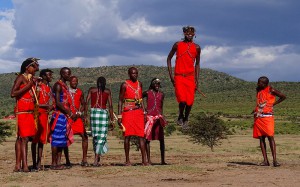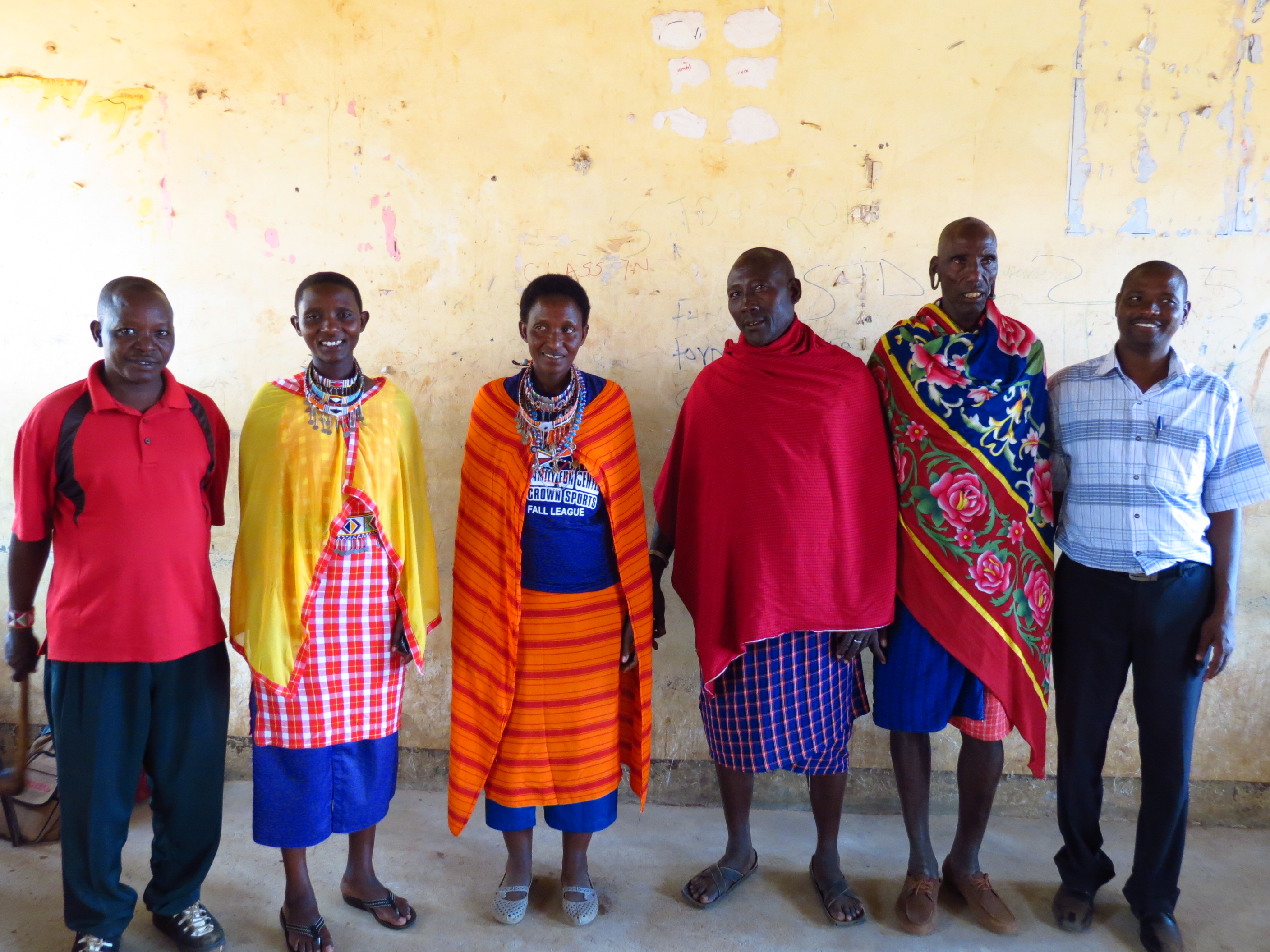Tom O’Connor reports from County Kajiado, Kenya, on a local community’s response to female genital mutilation (FGM).
Sometimes in life, we get an opportunity that 99% of other people will never experience; a chance to meet somebody who you regard as an inspiration, a hero. It is one of those moments that will stick with you for the rest of your life.
For the majority of people who are fortunate to have such a moment, that person would be a celebrity, somebody with a global profile; a Nelson Mandela, a Malala Yousafzai. But for me today, it was an ordinary person, or rather a group of people, born into a life very different from my own, thousands of miles away in rural County Kajiado, Kenya, in a small community called Maparasha.
Maparasha is remote. To reach this community you have to drive about 40 minutes off the main road from Nairobi to Tanzania through the remote countryside of southern Kenya. But unlike our countryside at home, the landscape is not green; it is yellow, brown, red, the resource-starved colour of an arid land that has not seen rain in over 2 years.

The people who live there are Maasai. We would know them from the BBC advert of a few years ago which showed their traditional “jumping up and down dance”. Teenagers might recognise them from a One Direction video of a few years back. If anyone is an avid reader of National Geographic, then I’m sure that the Masai appear regularly as one of the most fascinating tribes in the whole world.
As nomadic pastoralists, the Maasai way of life depends on their livestock. Cattle are the key currency, source of food and sign of wealth, and so when the rains do not arrive, the water sources dry up, and the land no longer produces, then the people suffer, their animals suffer, and so the people suffer even more.
In a world which, for those of us from the West, seems ever more connected, where I can sit in the garden of a hotel in Nairobi and find out what is happening in that exact moment in Dublin through Twitter, when I can call my family over the internet and tell them how my day has been without a second thought, it can sometimes seem incredible that the traditional way of life for some communities elsewhere has changed very little.
In many ways, their culture, their traditions, their day-to-day existence remains untouched by the wider world. The mobile phone is of course present, but being able to call your neighbours has not changed the reliance on livestock, nor has it changed some of the traditional cultural practices of the Masai.
Unfortunately, these include early childhood marriage and Female Genital Mutilation (FGM). I’m sure I don’t need to go into the specifics of FGM. At this point, I’m sure we are all aware of the horrors of this practice and the physical and psychological impact it has on girls who are forced to undergo the procedure.
For the Masai, FGM is a rite of passage signifying that a girl has become a woman and is ready for marriage. But she is not 18 as we might expect in the West, nor is she even 16. Traditionally, FGM is carried out on girls as young as 9 or 10.
If you are a woman, can you remember yourself at that age? If you are a man, then how about your sisters or your friends?
You wouldn’t even have completed primary school, yet Masai girls of the same age are dropping out of school, being cut and married off. Within a couple of years they will probably have their first child. Maybe they’ll have 2 or 3 by the time that you have sat your junior cert or GCSEs…
At Aidlink, we work with the Girl Child Network, a local Kenyan organisation on the Schools Sanitation Improvement Programme which aims to tackle harmful cultural practices such as FGM and early marriage in the Masai community by enhancing girls’ participation in education. Evidence shows that the longer we can keep girls in school, the less likely they are to undergo FGM. If you can teach a girl about her human rights – for example, to not be cut, to not be married off, and to go to school – then she understands and is more likely to reject such harmful cultural practices.
There are many barriers to achieving this aim, not least the lack of sanitary facilities in school for menstruating girls. The programme therefore provides basic provisions that we take for granted every day, access to water, latrines, sanitary towels and a changing room.
Perhaps the biggest barrier though is the attitude of the community.
FGM and early marriage are deeply embedded as part of their way of life. It has been that way for hundreds of years, why should they change now?

And so that is what I mean when I talk about meeting some heroes today. The picture above is of the Parents’ Association at Maparasha Primary School. With training and support from Aidlink and the Girl Child Network, these 6 people are at the forefront of the fight against FGM and early marriage in their community.
Being willing to stand up for anything in life is difficult, but it takes particular courage to stand up to your family, your neighbours, your whole community, and tell them that what they believe is wrong and harmful; that the girl child is not worth less than the boys; that if you let her go to school then she too can achieve great things; to be willing to call the authorities and report your own community members who do not respect the rights of their children and have them cut and married off. It is because of the courage of people like the Maparasha Parents’ Association that we are starting to make inroads in the fight against FGM.
What used to be celebrated in the community has now become taboo, with those who insist on continuing to carry out FGM on their children now doing so in secret. Whilst many have abandoned the practice, there are of course those who push against the trend. And so for as long Masai girls continue to have their rights violated, Aidlink, the Girl Child Network, and most importantly local community groups such as the Maparasha Parents’ Association will continue to speak out, advocate and educate.
It is easy for outsiders to criticise the Masai, but we are just that, outsiders. We do not understand their culture, their norms their traditions, and so whilst some people will listen to us, the majority will not. It is why people like the Maparasha Parents’ Association are so vital.
Outsiders can apply pressure but change must come from within the community, and in that regard, the Maparash Parents’ Associate are a beacon of light, leading the way for others to follow.
……………………………………………….
Note: this blog is based on a projects field trip visit in November 2015.

